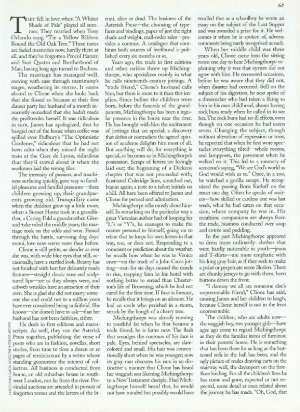The New Yorker, February 8, 1999 P. 66
When Clione and James, their children grown, decide to sell their house in London and move to the country, they’re afraid that their friend Michingthorpe, a fat book dealer who talks mostly about himself and is in love with Clione, wants to move in with them. It was through their work that Clione and James, who run the Asterisk Press together, met Michingthorpe, who specializes in what he calls nineteenth-century jottings. Since before the couple’s three children were born, Michingthorpe has been a regular presence in the house. But, after nearly twenty-five years there is to be a move, to a converted oasthouse in Sussex. Clione, who misses her children, is cheered by the prospect of growing her own vegetables. Michingthorpe is unmarried, has apparently never had an imtimate relationship. Clione isn’t aware of how she knows he loves her. It is incredible that Michingthorpe can love anyone. When they tell him that they’re moving, Michingthorpe’s mouth opens and he presses his hands into his chest; five days later, he calls to say he’s been to see the oasthouse. When Clione and James visit again the house they have bought, the elderly man who receives them says, “Your friend was interested in the sheds.” Clione confronts Michingthorpe, telling him that they have no intention of converting the sheds. “We’ve never talked about your living with us,” she says. It is impossible to know if this is acknowledged. Michingthorpe talks about a Madox Ford he sold and the ale his family brewed in the seventeen-hundreds. Clione tells her husband that Michingthorpe is in love with her. “You couldn’t have imagined it?” James says. “Poor bloody fool!” Clione has dreamed these last few nights of Michingthorpe’s shadow thrown on snow in the oasthouse garden. His fleshy palms were warmed by a coffee mug while his talk went on, while she beat up a souffle. Why should they pander to the awkward selfishness of an oddity? “It’s a different kind of love,” Clione murmurs. As she passes through the empty house, Clione thinks: Who will listen to him? Who’ll not want to know what a splendid find he has come across at another auction? Who’ll not want to know that oysters don’t agree with him? He is there when they drive off but does not wave, as if he never knew them. Their unpresentable friend won’t come, not even once. Clione does not know why the pity she feels is so intensely there, only that it is and that his empty love is not absurd.

